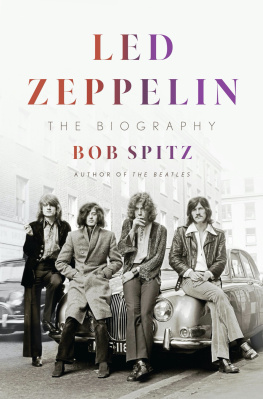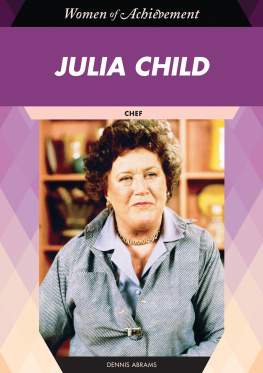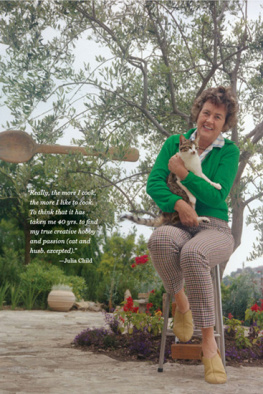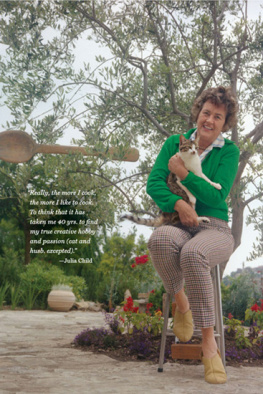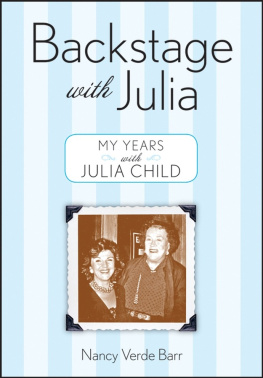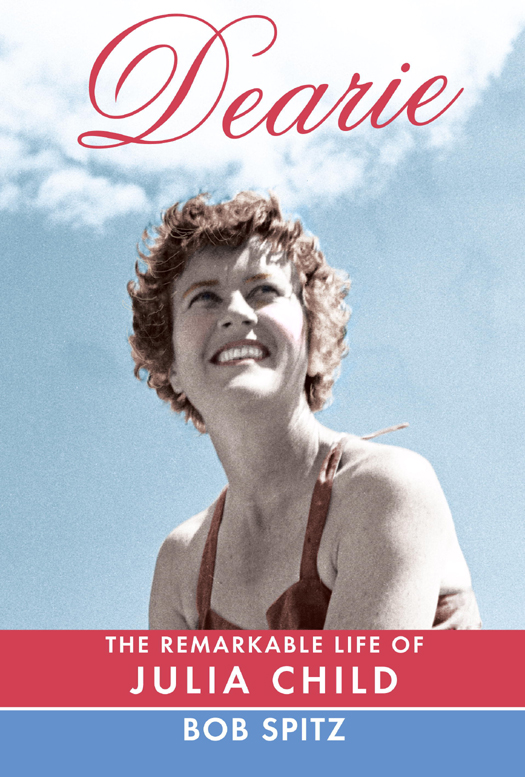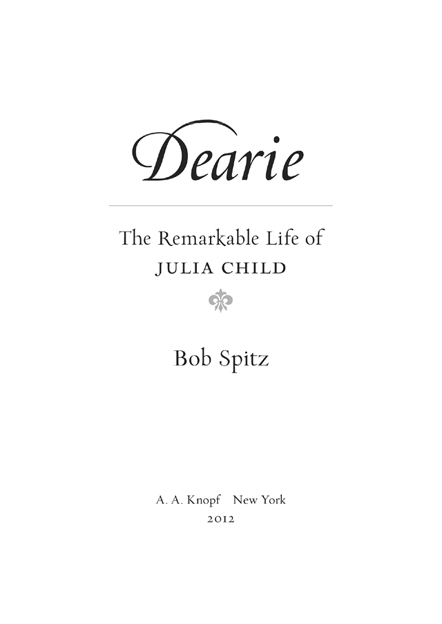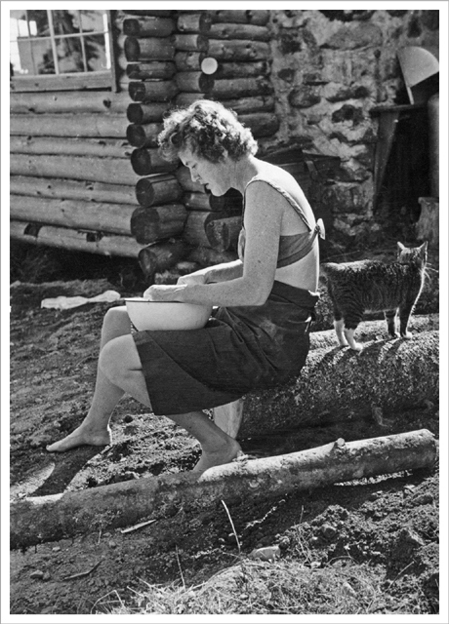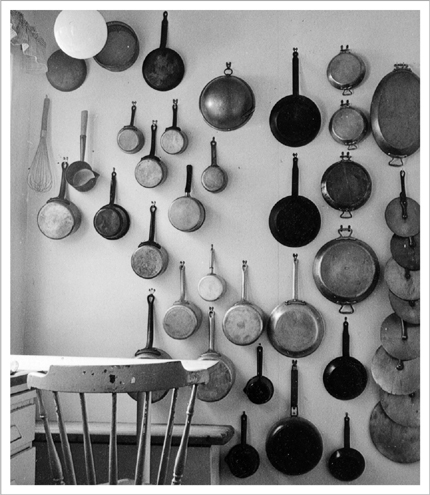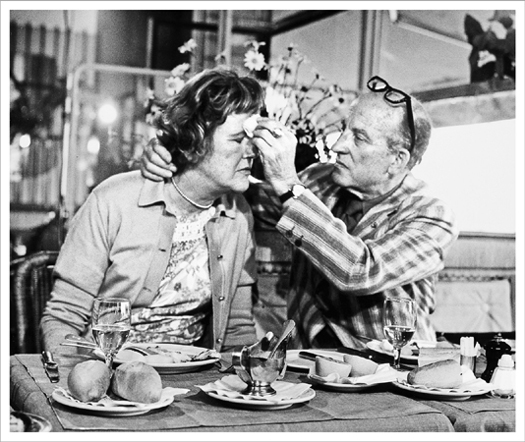Bob Spitz - Dearie: The Remarkable Life of Julia Child
Here you can read online Bob Spitz - Dearie: The Remarkable Life of Julia Child full text of the book (entire story) in english for free. Download pdf and epub, get meaning, cover and reviews about this ebook. year: 2012, publisher: Random House Large Print, genre: Non-fiction. Description of the work, (preface) as well as reviews are available. Best literature library LitArk.com created for fans of good reading and offers a wide selection of genres:
Romance novel
Science fiction
Adventure
Detective
Science
History
Home and family
Prose
Art
Politics
Computer
Non-fiction
Religion
Business
Children
Humor
Choose a favorite category and find really read worthwhile books. Enjoy immersion in the world of imagination, feel the emotions of the characters or learn something new for yourself, make an fascinating discovery.

- Book:Dearie: The Remarkable Life of Julia Child
- Author:
- Publisher:Random House Large Print
- Genre:
- Year:2012
- Rating:3 / 5
- Favourites:Add to favourites
- Your mark:
Dearie: The Remarkable Life of Julia Child: summary, description and annotation
We offer to read an annotation, description, summary or preface (depends on what the author of the book "Dearie: The Remarkable Life of Julia Child" wrote himself). If you haven't found the necessary information about the book — write in the comments, we will try to find it.
Now, in Bob Spitzs definitive, wonderfully affectionate biography, the Julia we know and love comes vividly and surprisingly to life. In Dearie, Spitz employs the same skill he brought to his best-selling, critically acclaimed book The Beatles, providing a clear-eyed portrait of one of the most fascinating and influential Americans of our time a woman known to all, yet known by only a few.
At its heart, Dearie is a story about a womans search for her own unique expression. Julia Child was a directionless, gawky young woman who ran off halfway around the world to join a spy agency during World War II. She eventually settled in Paris, where she learned to cook and collaborated on the writing of what would become Mastering the Art of French Cooking, a book that changed the food culture of America. She was already fifty when The French Chef went on the air at a time in our history when women werent making those leaps. Julia became the first educational TV star, virtually launching PBS as we know it today; her marriage to Paul Child formed a decades-long love story that was romantic, touching, and quite extraordinary.
A fearless, ambitious, supremely confident woman, Julia took on all the pretensions that embellished tony French cuisine and fricasseed them to a fare-thee-well, paving the way for everything that has happened since in American cooking, from TV dinners and Big Macs to sea urchin foam and the Food Channel. Julia Childs story, however, is more than the tale of a talented woman and her sumptuous craft. It is also a saga of Americas coming of age and growing sophistication, from the Depression Era to the turbulent sixties and the excesses of the eighties to the greening of the American kitchen. Julia had an effect on and was equally affected by the baby boom, the sexual revolution, and the start of the womens liberation movement.
On the centenary of her birth, Julia finally gets the biography she richly deserves. An in-depth, intimate narrative, full of fresh information and insights, Dearie is an entertaining, all-out adventure story of one of our most fascinating and beloved figures.
From the Hardcover edition.
Bob Spitz: author's other books
Who wrote Dearie: The Remarkable Life of Julia Child? Find out the surname, the name of the author of the book and a list of all author's works by series.

